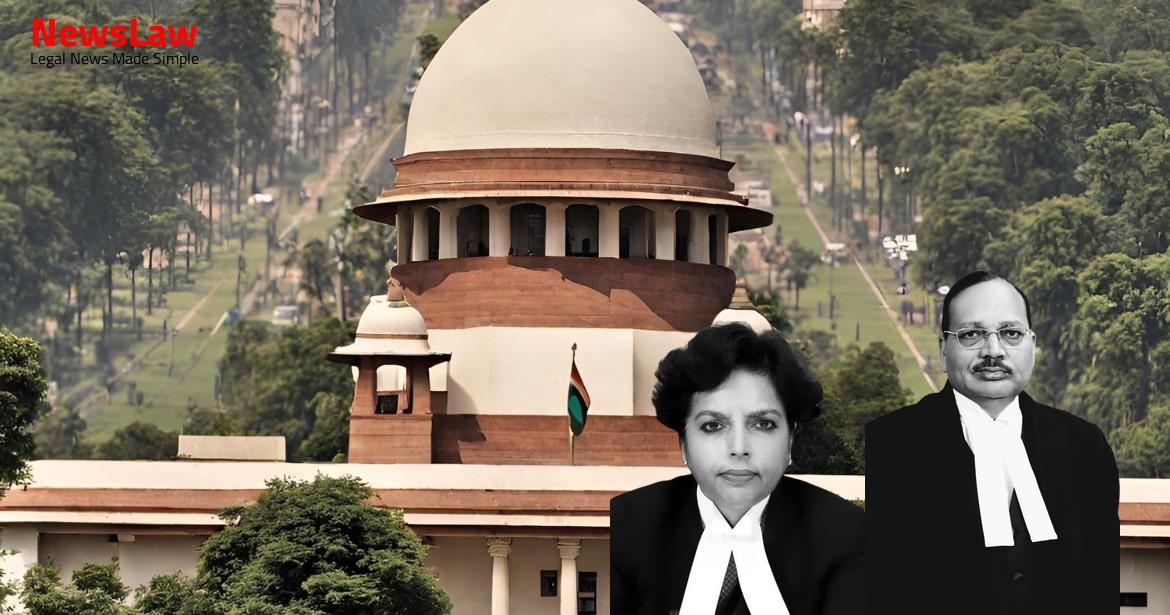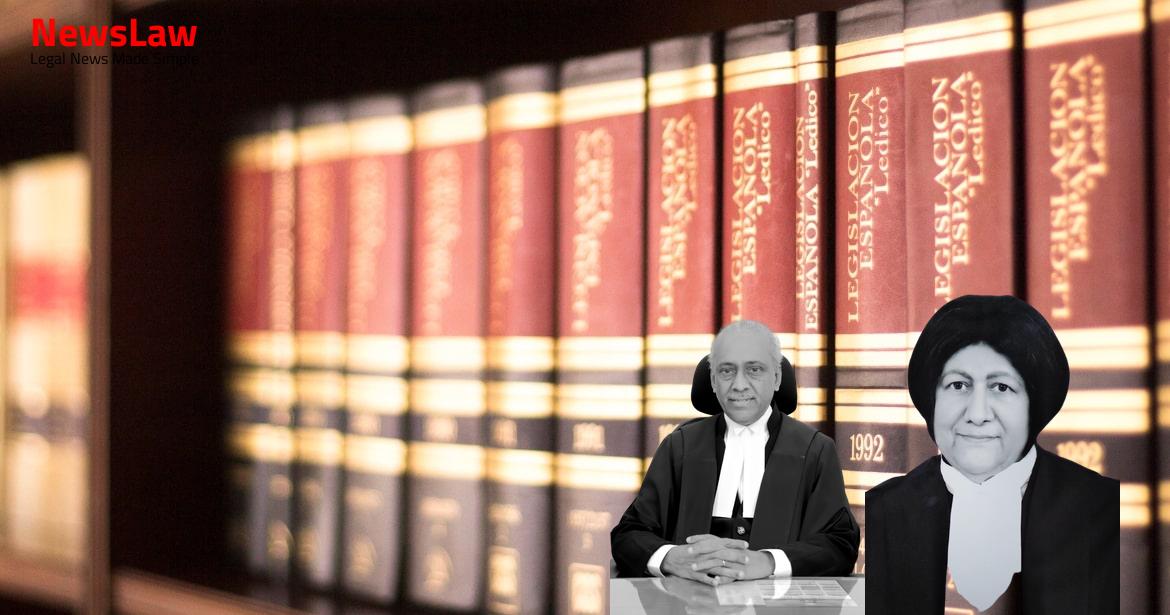The appellant alleges that the respondent-wife was not happy and her father used to interfere and pressurize him and his family.
Also Read: https://newslaw.in/supreme-court/legal-analysis-of-claim-for-loss-of-profit-in-delayed-contract/
When the application was heard by the High Court next on 18.01.2023, without adverting, the pending anticipatory bail was rejected, and the High Court went on to direct the appellant to surrender before the competent Court and seek regular bail. Petitioner is directed to surrender before the court below and pray for regular bail, the learned court below shall consider the same on its own merits, without being prejudiced by this order.”
The appellant contends that importance has been placed by the Constitution on the value of personal liberty, the necessity for arrest before filing of the charge sheet occurs when the accused’s custodial investigation or interrogation is essential or in certain cases involving serious offences where the accused’s possibility of influencing witnesses cannot be ruled out.
Learned counsel on behalf of the State submitted that the mere fact that a charge sheet is filed would not per se entitle an accused to the grant of anticipatory bail, which always remains discretionary.
It has been ruled, in a long line of cases that ordinarily bail ought to be granted and that in serious cases – which are specified in the provisions of the CrPC (Section 437) which involve allegations relating to offences carrying long sentences or other special offences, the court should be circumspect and careful in exercising discretion. State (NCT of Delhi), this court had occasion to review past decisions, including considering the judgment in Gurbaksh Singh Sibbia v State of Punjab and decide whether imposition of conditions limiting the order of pre-arrest bail, particularly when charge-sheet is filed, is warranted.
We are of the opinion that the conditions can be imposed by the court concerned while granting pre-arrest bail order including limiting the operation of the order in relation to a period of time if the circumstances so warrant, more particularly the stage at which the “anticipatory bail” application is moved, namely, whether the same is at the stage before the FIR is filed or at the stage when the FIR is filed and the investigation is in progress or at the stage when the investigation is complete and the charge-sheet is filed. Likewise, conditions which limit the grant of anticipatory bail may be granted, if they are required in the facts of any case or cases; however, such limiting conditions may not be invariably imposed.
Courts ought to be generally guided by the considerations such as nature and gravity of the offences, the role attributed to the applicant, and the facts of the case, while assessing whether to grant anticipatory bail, or refusing it. Despite several Law Commission Reports and recommendations of several committees and commissions, arbitrary and groundless arrests continue as a pervasive phenomenon. From a plain reading of the aforesaid provision, it is evident that a person accused of an offence punishable with imprisonment for a term which may be less than seven years or which may extend to seven years with or without fine, cannot be arrested by the police officer only on his satisfaction that such person had committed the offence punishable as aforesaid. The law mandates the police officer to state the facts and record the reasons in writing which led him to come to a conclusion covered by any of the provisions aforesaid, while making such arrest.
Apart from this, the police officer has to be satisfied further that the arrest is necessary for one or the more purposes envisaged by sub-clauses (a) to (e) of clause (1) of Section 41 CrPC.”
The court also issued valuable directions to be followed by the police authorities and the courts, in all cases where the question of grant of bail arises. Merely because an arrest can be made because it is lawful does not mandate that arrest must be made.
What appears from the record is that the appellant cooperated with the investigation both before 08.08.2022, when no protection was granted to him and after 08.08.2022, when he enjoyed protection till the filing of the chargesheet and the cognizance thereof on 01.10.2022. However, the court did not do so but mechanically rejected and, virtually, to rub salt in the wound directed the appellant to surrender and seek regular bail before the Trial Court. The police officer- shall forward the check list duly filled and furnish the reasons and materials which necessitated the arrest, while forwarding/producing the accused before the Magistrate for further detention; 11.4.
Failure to comply with the directions aforesaid shall apart from rendering the police officers concerned liable for departmental action, they shall also be liable to be punished for contempt of court to be instituted before the High Court having territorial jurisdiction. Both the High Courts and the DGP’s of all States shall ensure that such guidelines and Directives/Departmental Circulars are issued for guidance of all lower courts and police authorities in each State within eight weeks from today.
Case Title: MD. ASFAK ALAM Vs. THE STATE OF JHARKHAND (2023 INSC 660)
Case Number: Crl.A. No.-002207-002207 / 2023



